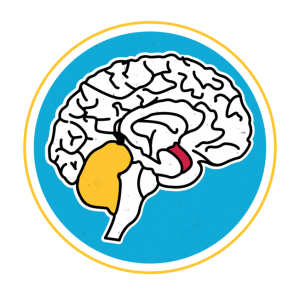Today on Unleashed we welcome Sarah Noll Wilson. Sarah is an Executive Coach, Keynote Speaker, Transformer of Teams, Researcher, and Soon-to-be-Author who’s passionate about helping leaders positively and powerfully impact those around them. Her 15 years of experience and MSc. degree in Leadership Development makes her well qualified to speak about what makes a great leader.
The Truth about Connection and Relationships
Nothing happens without relationships. For most, our success is directly tied to the quality of our relationships. Despite this, most people are not deliberate about building positive relationships; we leave it to chance.
Our brains and bodies are primally “wired” for connection. We are programmed for survival, and our chances are better when we are in herds and with others.
Further, relationship building is not something we do just some of the time – EVERY connection with another person influences our relationships across all mediums. Every interaction either increases or decreases the relationships (like deposits and withdrawals in a bank account).
Some studies suggest we need 8-10 positive interactions to reverse a negative. We can’t completely avoid bad ones all the time, they happen. But rebuilding and recovering is what matters.
The Science of Stress
Stress creates biological and chemical reactions in our bodies which can impede our interactions with others. When stress is high, cortisol is created and our ability to connect is lessened; we are more closed. Oxytocin, sometimes called the “cuddle hormone”, is the opposite and makes us more open.
The amygdala is part of our primitive brain controlling these chemicals. It constantly scans the environment for threats; physical, emotional, ego, any type of threat (real or perceived). It’s like a neurotic chihuahua (Sarah has one named Seymour), always on alert for threat.
If a threat is detected, the amygdala will trigger a threat-based response within .07 seconds and pushes out adrenalin and cortisol. In this threat-based state, our brains lose access to higher functions of the prefrontal cortex – logic, empathy, rationality, etc. We even lose access to reading behaviors of others accurately (and interestingly, it can take up to 24 hours to process/metabolize the chemicals in our body).
What’s different during the Pandemic?
Right now, we are experiencing higher and more prolonged levels of stress and fatigue than ever in our lives for a variety of reasons:
- Many are experiencing collective grieving right now. Some of us have lost loved ones. Or maybe we are grieving some or all aspects of our pre-COVID lives: careers, livelihoods, sports, activities, social relationships, and so on.
- We are getting exhausted by constant online meetings. Deep listening takes more energy, not to mention distractions at home and worries about technology.
- Most of us have novelty fatigue. Simple, day-to-day things like getting groceries, fuel, a haircut, or filling a prescription are now more complicated and we need new ways to execute these things.
- Some of us are feeling guilt, a type known as “survivor guilt”. This pandemic is highlighting the ‘haves’ and ‘have-nots’ in society, and people we know in lower socio-economic situations are having a more difficult time. Similarly, we may have friends and family members whose jobs and companies are being hit harder than ours.
Add to this the fact that rest and sleep are more difficult now. During prolonged periods of perceived threat, our survival brains are on high alert constantly looking to respond. This extends to our subconscious mind, and healthy, rejuvenating sleep is harder.
What steps can we take?
Sarah suggested a variety of ways we can be proactive in these circumstances and continue to foster positive connection and relationships:
- We start by recognizing what happens to us when our amygdala triggers. Different people react differently – heart rates increase, stomach aches, red necks, etc. We then need to work to calm our response using techniques like deep breathing and naming the emotions and feelings we and others may be having. Sarah referenced that in conversations with her husband she’ll sometimes say, “the chihuahua is in charge right now you know.”
- Build up resiliency and recharge by doing things that are familiar like re-watching a movie or rereading a book. Prioritise health – eat, sleep, etc. and reframe self-care as part of the work, not an add on.
- Share what’s working with your community. Don’t brag if things are going well. Help others by being a giver, by contributing to raising the tide to help all boats float.
- Recognize and use the fact that our emotions are contagious. Energy, stress, etc., are passed to others. Consider how you want to show up.
- Use ‘up-regulating’ language (see slide). Build trust and positive emotions. Releases oxytocin in others to offset the cortisol.
- Build trust by leveraging the trust model – empathy, authenticity, and logic. Right now, empathy is the most important.
- Avoid ‘fixing’ when people are in a high emotional state. Instead, ACKNOWLEDGE the emotions being expressed. Be more empathetic, check-in more often, ask open questions (as described by John Spence in episode 1). Recognize that we naturally interpret what people say in our own context and experience, instead of really listening to understand. This is where forcing ourselves to summarize and paraphrase what we heard can increase understanding and build validation and trust.
Take Your Business to the Next Level
At Results we care about your success, we understand how overwhelming it can feel to run a business, and we’re here to help. Reach out to Nicole through our contact form for ways to unleash the potential of your business.
Visit the Unleashed Podcast Library where you’ll find exclusive conversations with world-class thought leaders, authors, and leadership experts.
Each episode of Unleashed is hosted by Results’ CEO Jeff Tetz who spends most of his day exploring what makes high performers tick and helping build a community of leaders who want to learn and grow together. Follow Jeff (Twitter; LinkedIn; Instagram) for more great leadership insights.


